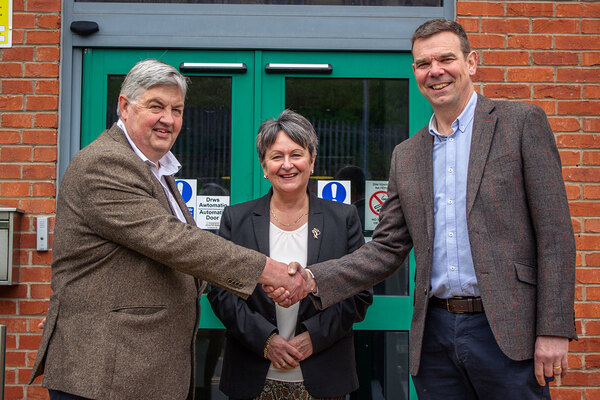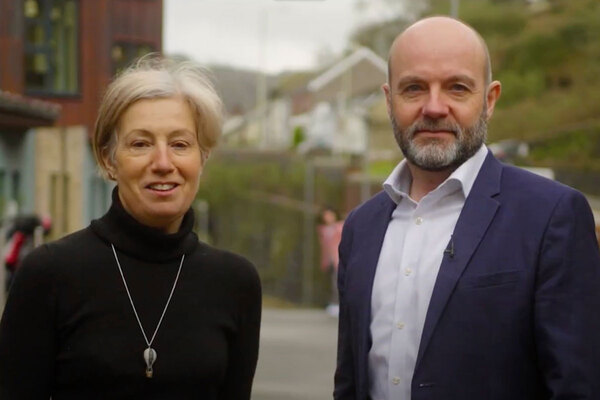You are viewing 1 of your 1 free articles
Dispatches from Cardiff
Nathaniel Barker presents the key talking points, take-aways and inside stories from the three-day TAI conference in Wales.
‘Time to deliver’ was the title of this year’s TAI conference. It provided an apt theme for the event, which saw the Welsh housing sector descend once again on Cardiff’s SSE Swalec cricket stadium to share ideas, hopes, fears, witty anecdotes and business cards.
The past three days have seen a host of distinguished figures deliver speeches and seminars, punctuated by buzzing, informal discussions between delegates during breaks in the venue’s exhibition centre. Speakers came from a vast range of backgrounds, including politics, medicine and health, law enforcement and filmmaking.
Next month’s snap general election was, predictably, on the minds of many attendees. But it never overshadowed patently Welsh issues – particularly, the task to build 20,000 new, affordable homes by 2021. Despite the impending polls, there was little appetite here for speculation about policy.
Instead, there was a clear sense that now is the time to accept the housing challenges facing Wales and deliver. Below, Inside Housing rounds up the headline matters at TAI 2017 as the Welsh housing sector faces up to its future.
1. Unfair reform?
Inside Housing reported last week on the huge impact that Local Housing Allowance (LHA) caps will have on Welsh housing associations.
Certainly the impact of the cap on the security of supported housing weighed heavy on the minds of many at the conference.
Likewise, Universal Credit cast a long shadow over much of the debate.
Lead housing officials from Flintshire County Council, the first Welsh local authority to have experienced Universal Credit, delivered a sombering presentation on the effects they have witnessed so far on working-age families and 18 to 21-year-olds.
Squeezes on services and revenue are sure to be felt across the sector as these welfare reforms come into force, and the Welsh Government can do very little to mitigate that.
2. Teamwork
That is not to say Welsh social landlords are cowing with concern. Far from it: much of the conference’s discussion was around what more housing providers can do to help health, social care and police services.
Cross-sector collaboration to help meet the challenges faced by various public services in Wales was a recurring theme and there were positive reactions to speakers’ calls for closer relationships with other key areas of social policy.
3. Cracking on

We are now 12 months into the five-year timeline set by the Welsh Government for its 20,000 new affordable homes target.
Delivering a speech on the final morning, communities and children secretary Carl Sargeant (pictured) was clear in his message: good work so far, but we need more, more, more.
He called for an imminent “real big burst” of delivery.
The good news is one of the major hindrances to “big bursts” of building – namely, the Office for National Statistics’ reclassification of housing associations into the public sector – looks like it will fade away soon. Ian Williams, head of registered social landlord development for the Welsh Government, promised to get the issue “off the table” very soon.
4. Thinking differently
Big bursts are easier said than done – particularly given the revenue pressures on councils and housing associations alike.
This is a challenge that will require some creative, fresh thinking from providers to respond to a new environment.
That of course, means new types of housing – and the Welsh Government’s Innovative Homes Fund looks like it might start bearing fruit soon. But it also involves other changes to keep the sector razor sharp. Changes, for instance, like increases in data gathering and sharing.
5. Story time
Another key aspect of thinking differently for the Welsh sector will be in how it articulates itself – to tenants, to the regulator and to the UK government.
The Public Accounts Committee’s inquiry into regulation was a wake-up call in this regard, and a consensus is building that housing associations in Wales need to do more to be fully transparent. Beyond that, though, the sector needs to ‘tell its story’ – a phrase which echoed throughout the debates and speeches this week.
Those welfare reform challenges, and the struggle to find enough land and cash to build social housing, are ultimately challenges which will affect many of society’s most vulnerable people. In order to convey this message to tenants, to investors and to governments, the housing sector needs to be clear and vocal about its work.







